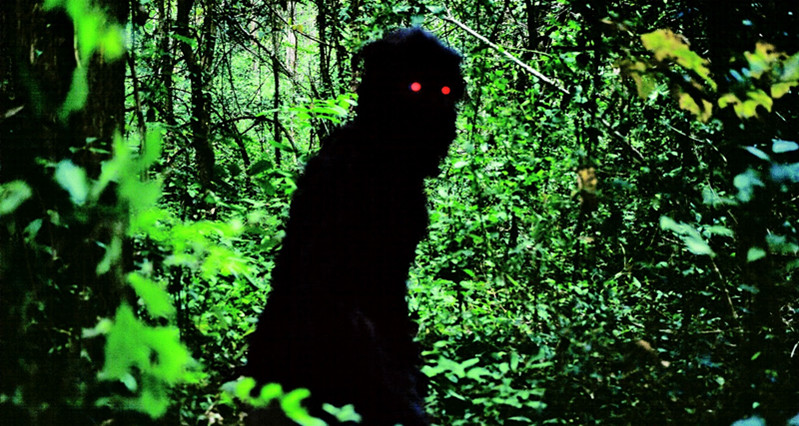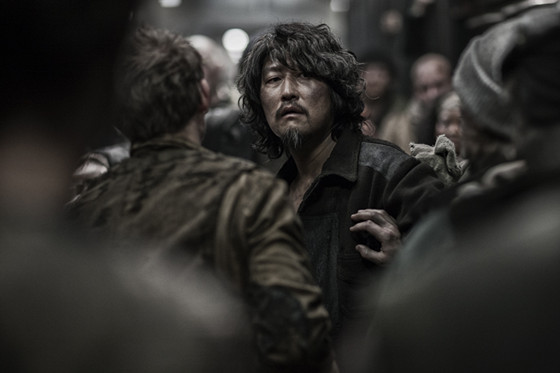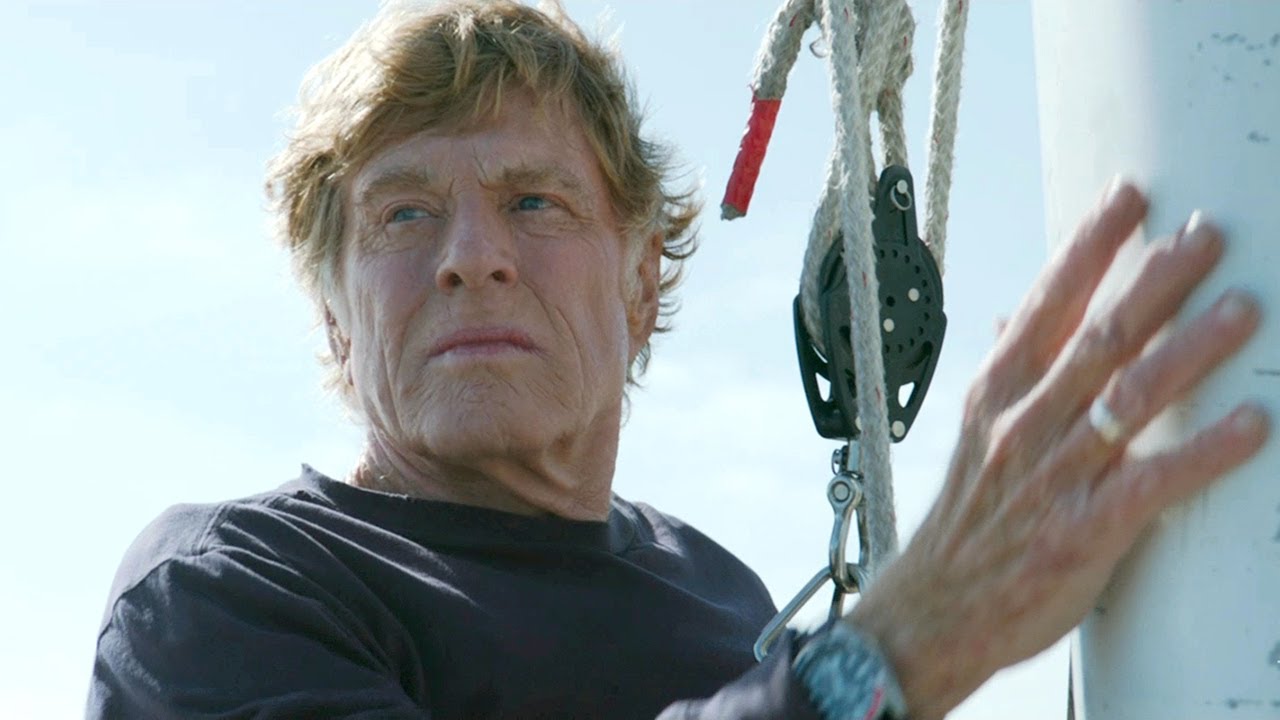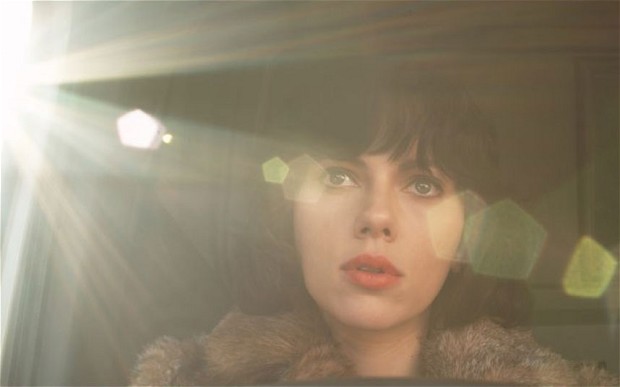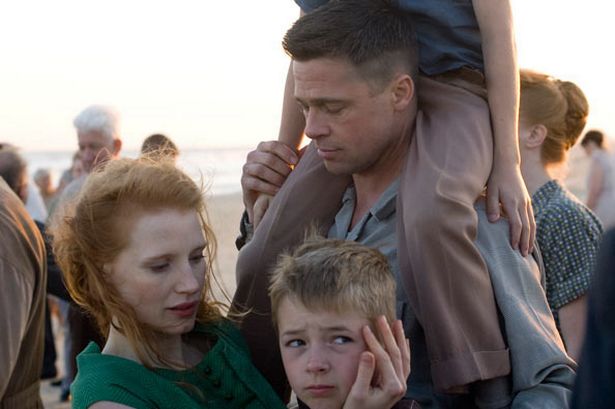5. Uncle Boonmee Who Can Recall His Past Lives (Weerasethakul)
IMDb Score: 6.6
It isn’t exactly a head scratcher why IMDb users were less than enamored by “Uncle Boonmee Who Can Recall His Past Lives”. The Palme d’Or winning enigma by Thai filmmaker Apichatpong Weerasethakul is hardly accessible; in fact it basically requires an evolved taste in film to enjoy.
Viewed without context or an appreciation for art cinema, “Uncle Boonmee” could be written off as random or confounding. However, the deeper one delves into the film, the more is revealed.
The director has said that his film is about “objects and people that transform”, a theme which is brilliantly tackled by the subject matter – reincarnation – as well as the Weerasethakul’s clever idea to film the movie in six different styles, which include the costume drama, the documentary and the “old film with stiff acting and classical staging”. The beautiful cinematography of forested vistas and the majestic Thai landscape shrouds the story in a mysterious veil, also giving it a stunning backdrop.
Understanding the production of and artistic decisions behind a piece like “Uncle Boonmee” can greatly improve your viewing experience, and dramatically alter how much you take away for said viewing.
4. Snowpiercer (Bong)
IMDb Score: 7.0
Joon-ho Bong’s first English-language film, the allegorical thriller “Snowpiercer”, ranks among the most substantive and original science fiction films of the twenty-first century. Harnessing a deft understanding of the visual language of cinema, the director tells an immediate and gripping story which also functions as a relevant, potent political message. Said statements pervade the film, yet they never overshadow the action-packed intensity, viscera and thrilling power the story has to offer.
Universally acclaimed by critics and a much discussed favorite of 2014, why “Snowpiercer” holds a middle-of-the-road 7.0 is perplexing. With action star Chris Evans leading an all-star cast, Bong’s film successfully translates his directorial sensibilities into several popular American genres, and the result is both a treat for cinephiles and quite accessible to entertainment seekers.
It also features some of the most unbelievably choreographed and executed action sequences in recent memory; set entirely on a train in the near future, some amazing things are accomplished in technical storytelling areas, as characters fight their way to the front in an attempted revolution.
It’s an bitingly critical and effectively visual metaphor for the class system – those born into the lower ranks are doomed to live out their lives in poverty and misery, while the rich enjoy delicacy and pretend to be of high character. Maybe too many of those very sort of people saw and rated “Snowpiercer” on IMDb, as any other explanation for its score seems unfisable.
3. All is Lost (Chandor)
IMDb Score: 6.9
In a late-career performance which reaffirmed his status as one of the best actors alive, Robert Redford played a shipwrecked sailor lost at sea in J.C. Chandor’s “All is Lost”. This premise may not seem unique at face value, but the script takes a fascinating approach to the story – a mere three or four lines of dialog are spoken by Redford in the entire movie, and he’s the only character.
This concept seems almost impossible to pull off, but Chandor’s incredible, poetic direction and Redford’s mesmerizing performance make for a visually beautiful modern masterpiece which defies the conventions of film storytelling by being as simple and intimate as a story can get.
Those expecting a rollicking tale of adventure and survival at sea may have been disappointed by the slow pace of “All is Lost”, and if you wait through the film expecting an epic conclusion or a grand statement, you’ll probably be let down.
The significance of this work reveals itself to viewers who are willing to give their time and attention, and who can recognize that sometimes a stunning feat of filmmaking is not always huge in scale or epic in scope, but maybe beautifully pure and willing to let the depth of the script, performance and direction speak for themselves.
2. Under the Skin (Glazer)
IMDb Score: 6.3
One of the most analyzed art films of 2014, Jonathan Glazer’s “Under the Skin” is otherworldly and insanely creepy – a film like no other and one of modern cinema’s most notable works of surrealism.
It also features Scarlett Johansson’s most daring performance to date, as a being in Scotland who prowls the roads in her van and seduces men, only to lead them back to an ambiguous lair where the floor melts beneath them and they’re swallowed up. It’s these sequences, as well as other surreal interludes during which the mystifying “Under the Skin” displays its awesome practical effects, and where it manifests its uncompromising, surreal nature.
Everything about Jonathan Glazer’s film is audaciously weird and unconventional. Mica Levi’s score is unforgettably unique, the cinematography is bleak and striking, and Glazer’s vision is about as disturbing and original as cinema gets. With traces of science-fiction and horror influences, but entirely a creation of its own, “Under the Skin” is impossible to turn away from and hard not to want to rewatch as soon as it’s over.
Like the best examples of surrealism in cinema, this film does not provide all (or really any) of the answers. Viewers get to come up with interpretations of their own, and on a first viewing, the enigmatic nature of the story could seem particularly unforgiving and impenetrable to someone expecting a clear-cut narrative. For those who appreciate this style of filmmaking however, “Under the Skin” is the kind of treat which only comes around once or twice a year, but can be savored for a lifetime.
1. The Tree of Life (Malick)
IMDb Score: 6.7
As far as cinematic storytelling goes, you’d be hard-pressed to find a more ambitious modern film than Terrence Malick’s “The Tree of Life”. Whilst few would deny this, the range of opinions on the movie itself are far more diverse.
To some, it’s a masterpiece – a modern day “2001”. To others, a pretentious bore of epic proportions. A similar consensus has been reached about basically all of the director’s work since “The Thin Red Line”; as a viewer, you’re either on- or off-board when it comes to the cinematic voice of Terrence Malick.
This being said, “The Tree of Life” is definitely his most respected work of the century thus far – the recipient of 2011’s Palme d’Or was named one of the ten greatest films of all time by Roger Ebert in his final such list and among countless other accolades, the greatness of “The Tree of Life” is becoming more difficult to deny.
The film focuses on an Texas family in the 1950s, but the story is intercut with cosmic scenes of the big bang, leading up to the age of the dinosaurs and into the future where one of the central family’s sons is grown up.
Concluding with a heavenly finale, the film is replete with eye-melting, ethereal visuals provided by the camera of Emmanuel Lubezki. This is a poor explanation of the movie’s scope and premise, but that’s just because this is one film which no attempt at synopsys would do justice. “The Tree of Life” truly has to be seen to be understood.
Yet of course, just as when “2001” premiered in 1968, or “Vertigo” ten years prior to that, Terrence Malick’s epic received just as much misunderstanding and perplexed reactions as it did deserved praise and acclaim.
Five years later, it is still too early to label the film a classic, or even definitively a masterpiece, but if time continues to treat “The Tree of Life” as it has in this past half-century, then it surely won’t be long. Without a doubt one of most important, often debated and heavily dissected works of film art in recent years, no head-scratching IMDb user can bring down this one.
Author Bio: Gavin Miller is a teen cinephile who runs the blog cinefreakdude.tumblr.com, ardently collects blu-rays, and is a lover of surreal cinema – in particular, all things David Lynch. He models his lifestyle after The Dude from The Big Lebowski.
